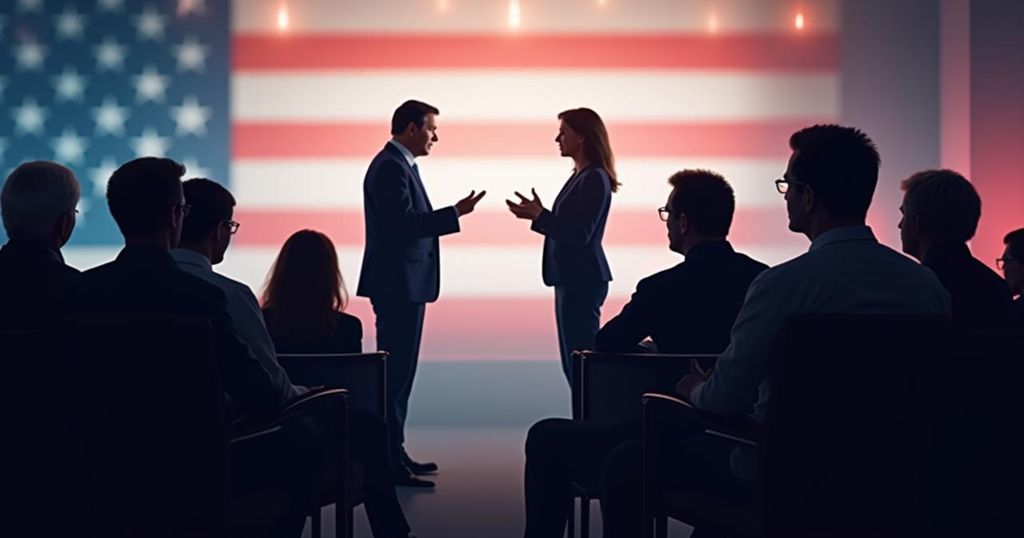Vance and Walz Clash in Final Vice Presidential Debate for 2024

Senator JD Vance and Governor Tim Walz faced off in a pivotal debate for the 2024 vice presidential election, focusing on key issues including the Middle East conflict, climate change, and the 2020 election legitimacy. Vance praised Trump’s leadership during crises, while Walz emphasized the need for steady leadership. The debate allowed for engaging exchanges due to continuous microphone access, making it the final scheduled debate before the upcoming election.
On Tuesday evening, Vice Presidential candidates Senator JD Vance (R-OH) and Governor Tim Walz (D-MN) engaged in a pivotal debate, their first and likely only confrontation of the 2024 electoral cycle. The debate, lasting for 90 minutes and moderated by CBS, showcased an array of pressing issues, notably the escalating conflict in the Middle East and the impending effects of climate change. Vance emphasized the perceived stability achieved under former President Donald Trump’s leadership, stating, “Donald Trump actually delivered stability in the world and he did it by establishing effective deterrence. People were afraid of stepping out of line.” In contrast, Walz expressed the necessity of steady leadership in tumultuous times, reflecting on the inadequacies witnessed during previous public appearances by Trump: “It’s clear, and the world saw it on that debate stage a few weeks ago a nearly 80-year-old Donald Trump talking about crowd size is not what we need in this moment.” The discussion effortlessly transitioned to the catastrophic impacts of Hurricane Helene and the implications of climate change. Walz criticized Trump’s dismissive approach to climate change, referencing his irresponsible comments regarding real estate opportunities in the wake of environmental disasters: “Donald Trump calls it a hoax and then jokes that these things would make more beachfront property to be able to invest in.” Vance countered by alluding to the Biden administration’s failures in energy production while suggesting that a more robust domestic manufacturing sector would address concerns about climate change. Moreover, the candidates deliberated several other critical topics, including immigration, healthcare, abortion, and the controversial 2020 election results. A notable feature of this debate was the continuous availability of microphones, which facilitated direct exchanges, culminating in Walz’s question regarding the legitimacy of the 2020 election—a question Vance notably sidestepped. This encounter marks the concluding face-off of these campaigns before election day, which looms just five weeks away amidst a tightly contested race reflected in national and battleground polls.
The 2024 election season has seen the vice presidential candidates take center stage as crucial figures who can influence voter sentiments and party dynamics. This debate occurred against a backdrop of significant global and domestic challenges, including the Middle East conflict and climate change, issues central to the current political discourse. The candidates’ performances and their responses to pressing current events not only shape public perception but also potentially affect future electoral outcomes. As national polls indicate a competitive landscape, the stakes are particularly high for both candidates as they strive to present compelling narratives and policy proposals to gain voter favor.
In summary, the debate between Senator JD Vance and Governor Tim Walz underscored the divergent approaches of the Republican and Democratic parties towards critical issues such as foreign policy, climate change, and democracy. Both candidates utilized the platform to critique the opposing party’s leadership and offer their visions for the future, while the absence of additional scheduled debates may heighten the significance of this exchange in the lead-up to the election. As election day approaches, the battleground remains split, with both parties eager to sway undecided voters amidst a contentious political climate.
Original Source: www.wifr.com







